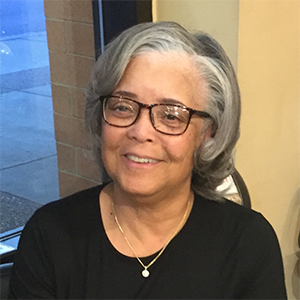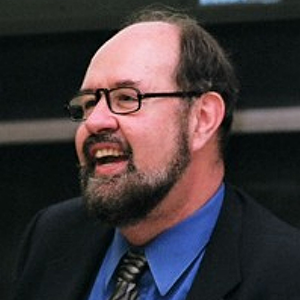Enter the office of Patricia Jones Whyte on the 3rd floor of Johnston Hall, and you’ll find it stacked with boxes. She’s trying to clean house. But to Jones Whyte, director, Office for Diversity in Graduate Education, those boxes are full of stories of all the students she’s worked with over the years at the University. She can’t just discard them!
Jones Whyte, who grew up in Washington D.C., is a long-time participant in student-focused Senate committees at the University. She served as a member of the Student Behavior Committee from 2004 through 2010; the Equity, Access, and Diversity Committee from 2004 through 2008; the Provost’s Appeal Committee from 2010 through 2012; and the Senate Committee on Student Affairs from 2013 until this summer, including a stint as chair from 2013-2015. She attributes her commitment to shared governance, and specifically on these committees, to her earliest years in higher education, first as student and then as staff. Her attendance at The Defiance College in Ohio coincided with the tail of Civil Rights activism across the nation. Black students were recognizing that they had the right and the power to make demands, to be treated fairly.
Jones Whyte earned her undergraduate degree in 1969, where she was one of only twenty black students out of a population of just over 1000 undergraduates. Ten of those twenty black students at Defiance were in her class, and nine out of the ten graduated four years later. (Fun fact: She was also a cheerleader.) Jones Whyte continued her education with a master’s degree in Student Personnel from Bowling Green State University, and after being well ensconced professionally, a Ph.D. from the University of Minnesota in Organizational Leadership, Policy, and Development, tracked in Higher Education.
After earning her master’s degree, Jones Whyte returned to Defiance and stepped in to a new position – associate dean of students. For Whyte Jones it was an opportunity to help shape “how I thought the world might look.” At that time, duties were split by gender, and so she was in charge of the women. Naturally, one of her responsibilities was student discipline. At that time, there was no student code of conduct at Defiance, and so consequences for transgression were meted out in a very arbitrary fashion. How one was punished depended greatly on the individual meting it out. Jones Whyte, in collaboration with her colleagues at four other small private colleges, had a hand in drafting the first student code of conduct for Defiance and the other colleges. The code provided new structure and guidelines for student judicial processes. It also provided an opportunity for students to be represented in the process, something Jones Whyte feels very strongly about to this day; her experience has proven that it is easy for students to get lost in decision-making.
That’s why, when the call for committee membership went out at the University of Minnesota, Jones Whyte applied and was selected to serve on the Student Behavior Committee. It seemed a natural fit. Ensuing committee service was a logical progression from the Student Behavior Committee. And all of it was a nice complement to the work she was already doing in the Office for Diversity in Graduate Education. Jones Whyte’s focus has been on increased retention and inclusion of students who might otherwise fall through the cracks, or feel they were not a full member of the University community. In addition to regularly tutoring and counseling students of color and first generation students on how to navigate the higher education environment, she has played a significant role in programming that helps support these same students. Such efforts include the Multicultural Summer Research Opportunities Program (MSROP), which encourages undergraduate students to give graduate education serious consideration; the Community of Scholars Program, which aims to “create an institutional environment that supports the academic and professional success of graduate students who are underrepresented in academia;” and other supportive programming, such as fellowships for a limited number of graduate students to teach at system campuses, a setup that is mutually beneficial: it provides the campuses with much needed diversity in the classroom, while offering the graduate student the opportunity to teach. And while not at work, Jones Whyte’s work continues: she is chair of the Board of Directors for Scholars of Minnesota - Creating Opportunities for Post-secondary Education (C.O.P.E.) Project, a non-profit organization whose mission is "to assist underrepresented students in obtaining educational opportunities, financial support, and other resources they may need to reach their highest academic, professional and personal goals."
When asked why others should get involved in governance, Jones Whyte said, “The only way for the University to fairly represent its members, is for those members to participate. It is the responsibility of everyone to get involved with the structure of which they are a part.” She added that if a person is uninformed on what is happening, they won’t be able to fix the problems they see.
It’s obvious that Jones Whyte has more than fulfilled her duties in this realm. And while she insists she is not tired by the work, Jones Whyte is retiring at the end of summer 2016 to provide the space for others to have the opportunity to continue her work. She’s slowly working to digitize the files in all those boxes so the paper can be recycled, but the stories remain. Her voice and service will be greatly missed, but she encourages others to step in, to be a part of the governance process, and to let their voices be heard.

